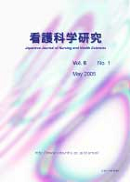Volume 12, Issue 2
Displaying 1-4 of 4 articles from this issue
- |<
- <
- 1
- >
- >|
Clinical Data
-
2014 Volume 12 Issue 2 Pages 44-52
Published: 2014
Released on J-STAGE: November 01, 2017
Download PDF (623K) -
2014 Volume 12 Issue 2 Pages 53-57
Published: 2014
Released on J-STAGE: November 01, 2017
Download PDF (332K)
Project
-
2014 Volume 12 Issue 2 Pages 58-67
Published: 2014
Released on J-STAGE: November 01, 2017
Download PDF (181K) -
Article type: Article
2014 Volume 12 Issue 2 Pages 68-75
Published: 2014
Released on J-STAGE: November 01, 2017
Download PDF (299K)
- |<
- <
- 1
- >
- >|
